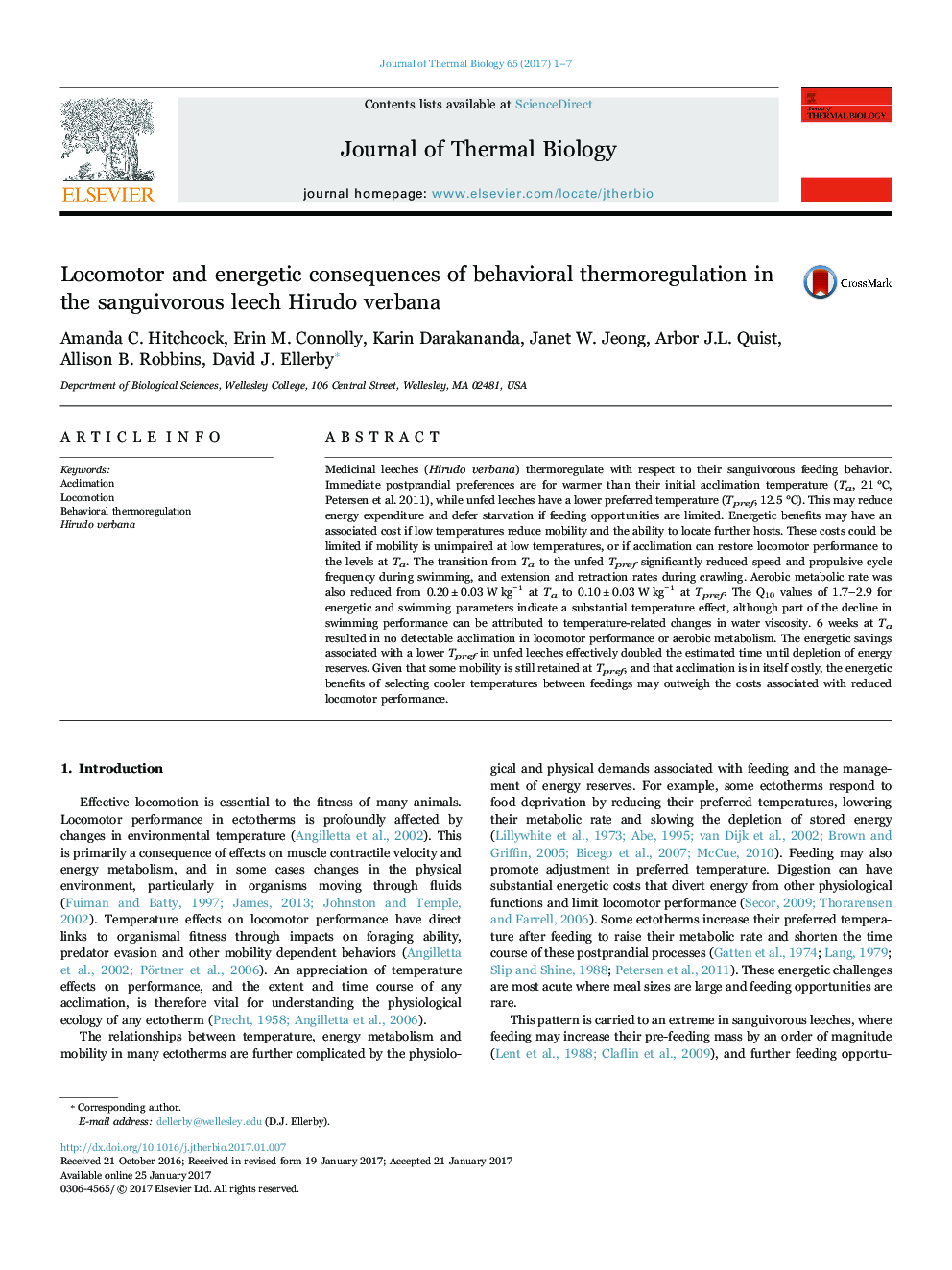| Article ID | Journal | Published Year | Pages | File Type |
|---|---|---|---|---|
| 5593391 | Journal of Thermal Biology | 2017 | 7 Pages |
Abstract
Medicinal leeches (Hirudo verbana) thermoregulate with respect to their sanguivorous feeding behavior. Immediate postprandial preferences are for warmer than their initial acclimation temperature (Ta, 21 °C, Petersen et al. 2011), while unfed leeches have a lower preferred temperature (Tpref, 12.5 °C). This may reduce energy expenditure and defer starvation if feeding opportunities are limited. Energetic benefits may have an associated cost if low temperatures reduce mobility and the ability to locate further hosts. These costs could be limited if mobility is unimpaired at low temperatures, or if acclimation can restore locomotor performance to the levels at Ta. The transition from Ta to the unfed Tpref significantly reduced speed and propulsive cycle frequency during swimming, and extension and retraction rates during crawling. Aerobic metabolic rate was also reduced from 0.20±0.03 W kgâ1 at Ta to 0.10±0.03 W kgâ1 at Tpref. The Q10 values of 1.7-2.9 for energetic and swimming parameters indicate a substantial temperature effect, although part of the decline in swimming performance can be attributed to temperature-related changes in water viscosity. 6 weeks at Ta resulted in no detectable acclimation in locomotor performance or aerobic metabolism. The energetic savings associated with a lower Tpref in unfed leeches effectively doubled the estimated time until depletion of energy reserves. Given that some mobility is still retained at Tpref, and that acclimation is in itself costly, the energetic benefits of selecting cooler temperatures between feedings may outweigh the costs associated with reduced locomotor performance.
Related Topics
Life Sciences
Agricultural and Biological Sciences
Agricultural and Biological Sciences (General)
Authors
Amanda C. Hitchcock, Erin M. Connolly, Karin Darakananda, Janet W. Jeong, Arbor J.L. Quist, Allison B. Robbins, David J. Ellerby,
